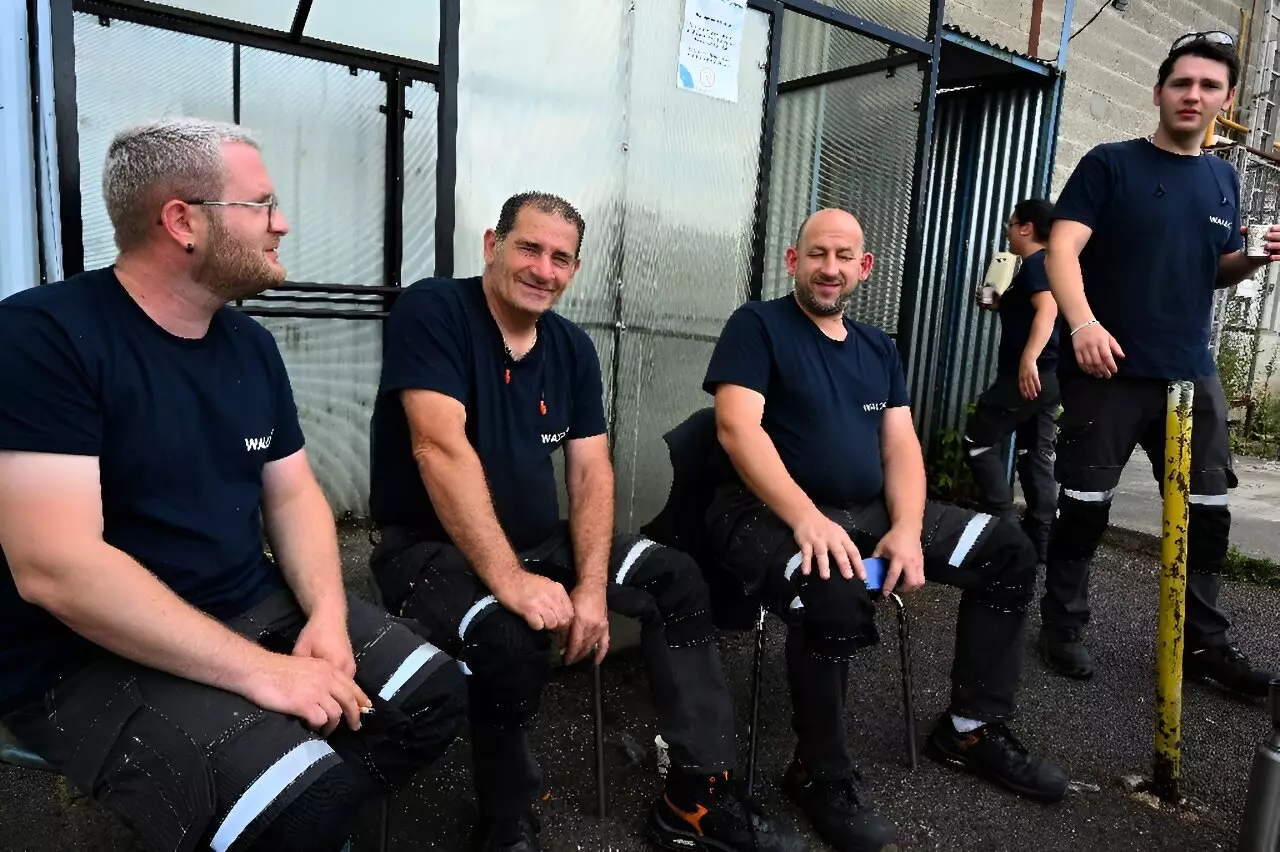As France approaches a 2035 deadline to phase out new combustion engine cars, the automotive industry is in a state of flux. While there is hope in certain regions like the north with the emergence of a “Battery Valley,” parts suppliers in other areas are facing uncertainty. With the looming restriction on the sale of petrol and diesel cars in Europe, the industry, which currently employs 200,000 people in France, is bracing for significant changes.
For workers in the industry, such as Severine Person, a quality control expert at a facility in the town of Vouziers, the transition to electric vehicles represents a precarious future. Despite the acquisition of the facility by Walor in 2018, investment in adapting to the shift to EVs was lacking. While certain productions like connecting rods for tractors and trucks are secure, the demand for other components is uncertain.
The mood varies across different regions of France. In the north, where battery gigafactories are being constructed, there is hope for new job opportunities. The Automotive Cells Company (ACC) in Douvrin, a joint venture involving Stellantis, Mercedes, and TotalEnergies, is building a massive battery plant. This move aims to address the social need for retraining employees, with a focus on automating production lines for battery manufacturing.
According to Plateforme automobile (PFA), an estimated 17,000 jobs are expected to be created by 2026 in gigafactories producing batteries and recycling facilities. However, concerns linger about the fate of workers who may be left behind in this transition. A study by the French metalworking industry indicates that up to 65,000 jobs in the sector could be at risk by 2030 due to the shift to EVs.
Economist Bernard Jullien predicts that the auto parts sector could lose around 40,000 jobs over the next decade as the industry moves towards electric engines. While some of the impact may be mitigated by retiring workers, the overall employment in the French auto industry is expected to decline significantly. There are fears that car manufacturers may choose to offshore production to cut costs, following a similar pattern to the steel industry.
Ludovic Bouvier, a representative of the CGT metalworkers union, raises concerns about manufacturers like Stellantis potentially moving production offshore in response to the shift to electric vehicles. While some production might remain in France, there is a risk that overall employment in the industry could fall to 100,000 or even lower. The electrification of cars could lead to increased offshoring, impacting job prospects in the country.
The French auto industry is at a crossroads as it navigates the transition to electric vehicles. While there are opportunities for job creation in certain regions, there are also significant risks of job losses in other sectors of the industry. As the deadline for phasing out combustion engine cars approaches, stakeholders must work together to ensure a smooth transition that safeguards workers’ livelihoods and the industry’s future.


Leave a Reply